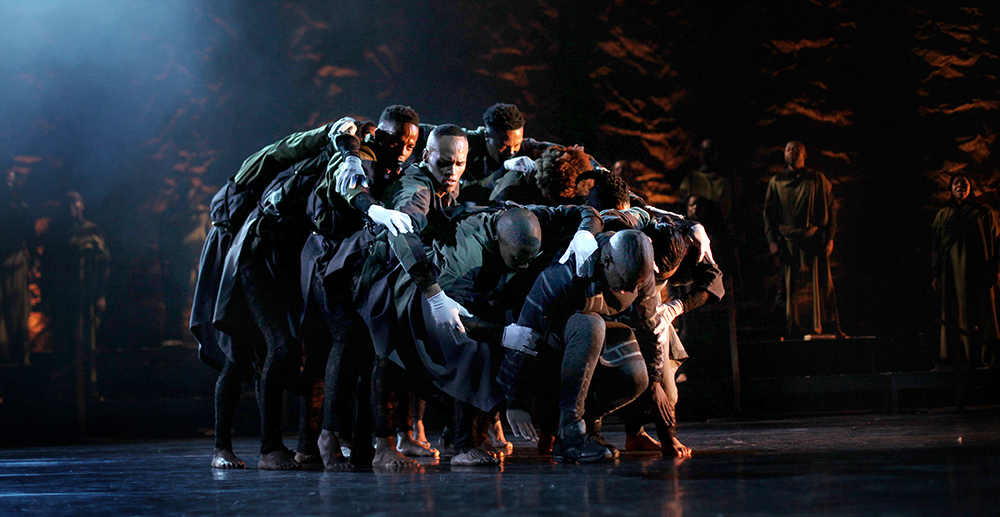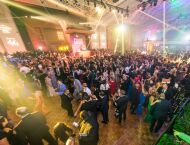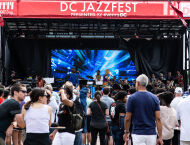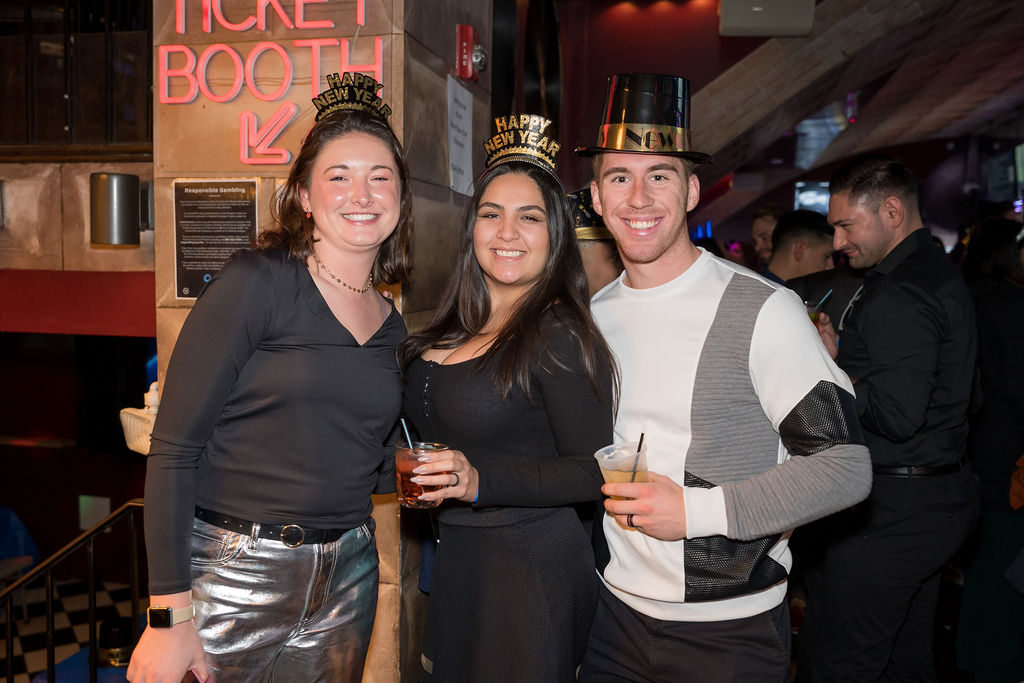Culture
 Photo: John Hogg
Photo: John Hogg
Gregory Maqoma’s Vuyani Dance Theatre Creates International Empathy At The Kennedy Center
January 22, 2020 @ 12:00am
As dancing bodies twist and move across stages, cultures intertwine and churn to create bitter-sweet pieces of art. While speaking with Nhlanhla Mahlangu, musical director for Gregory Maqoma’s Vuyani Dance Theatre in South Africa, Mahlangu commented on the complicity of speaking through a colonized culture.
“We are constantly evolving every day. My big thing at the moment is [that] I’m interested in the music that started as our colonial response but became our heritage.”
South Africa has a long and troubled history with Dutch and British colonial forces, and creating art through a tampered history is undoubtedly challenging. However, the Vuyani Dance Theatre has beautifully crafted Cion: Requiem of Ravel’s Boléro, a poetic performance that will soon be shared with DC audiences at the Kennedy Center on January 24-25.
Mahlangu concerns himself with the potentially problematic art of building upon this culture as he questions whether South African music communicates the cultural tragedy of colonization or reaffirms the practice by preserving protest songs.
“I’m not sure,” he says. “They are beautiful, and they have given birth to a lot of sounds that I use today, but I’m more interested in interrogating them.”
Regardless of origin, the performers of the Vuyani Dance Theatre share beautiful interpretations of a culture that continues to evolve with grace. And although audience members might not understand the deeper messages hidden in the South African lyrics, Mahlangu believes, “It’s much better if you can’t get the words.”
“We do want the audience to evoke their own personal stories and histories and the words for me… They kill the imagination of the audience,” he says. “So I’m even happier when the audience can hear the music.”
Although the Vuyani Dance Theatre is based in South Africa and the localized subject matter, Mahlangu is a firm believer that citizens of the world are interconnected.
“The world has become very much smaller. We’re in the same ball rotating and revolving and floating in the middle of nowhere. We are all trying to figure out this life thing the same way.”
When stated in such simple terms, South Africa doesn’t seem so far away, nor do its politics and current issues. Some issues hit closer to home than DC audience members might expect. For example, Mahlangu drew inspiration for upcoming performances of Cion: Requiem of Ravel’s Boléro from South African author Zakes Mda’s novel, Cion.
“Zakes Mda, who spent a lot of time in America, writes Cion. You see it all the time – he draws the parallel between American slavery and South African apartheid.”
The Vuyani Dance Theatre’s upcoming performances at the Kennedy Center will be the first time Mahlangu’s compositions have been shared in the nation’s capital, which he views as a thrilling opportunity. Audience members can expect a riveting and original show meant to connect their personal lives to a larger global story.
“The story of Cion is very important. I think it belongs to the world. It belongs to global audiences.”
Mahlangu’s favorite aspect of his group of performers is their generosity in bringing their own backgrounds to the stage.
“They have been generous in bringing forth their personal stories into the narrative of the work,” he says. “For me, a performance that is only about return is empty.”
His knowledge and passion for the art he creates echoed through our phone conversation from South Africa to the United States. Viewers of Gregory Maqoma’s Vuyani Dance Theatre will participate in a global event that relates stories transcontinentally. Not only does the Vuyani Dance Theatre attempt to encourage international empathy, but they succeed in making it entertaining.
Gregory Maqoma’s Vuyani Dance Theatre will perform Cion: Requiem of Ravel’s Boléro on January 24 and 25 at the Kennedy Center. Both performances start at 8 p.m. Tickets can be found here.
John F. Kennedy Center for the Performing Arts: 2700 F St. NW, DC; 202-467-4600; www.kennedy-center.org








